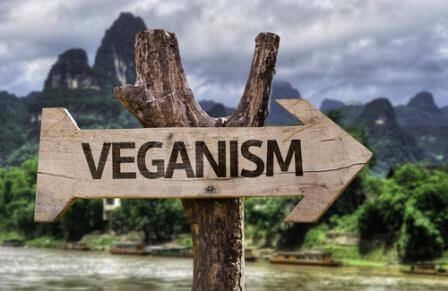The Problem with Vegan Alternatives
It’s getting easier to find vegan alternatives for virtually every animal product, from bacon to brie. But these foods rarely fill the same nutritional needs as the foods they replace.
Even if you aren’t vegan, reducing your consumption of animal products can save you money on your groceries, benefit the environment, and protect animal welfare. And when it comes to your health, limiting your consumption of red meat to a few times a month is probably ideal.
See also: You Don’t Have to Give Up Red Meat to Be Healthy
Whether you’re trying to incorporate a few more meatless meals into your repertoire or you have vegetarians coming to your barbecue, you also have a lot more vegan products to choose from than you used to. Everything from fake fish to veggie Wienerschnitzel to ersatz Emmantaler.
And, unlike in the past, they are not all made from soy! As I mentioned in Soy Pros and Cons, soy can be a valuable source of protein for vegetarians. But there are a few reasons that you don’t want to over do it with soy. So it’s nice to see vegetarian foods made from a greater variety of ingredients.
Having all these new alternatives available certainly makes it easier to reduce your dependence on animal foods. The problem is that these foods aren’t always providing the same nutrition as the foods they are intended to replace.
Vegan Cheese: More Than Dairy Free
I recently reviewed a new line of vegan cheese made out of coconut oil, potato starch, and seaweed extracts. I’m not going to lie to you: I would not have served it on a cheese plate—no matter what the press release said. But you could use it to make a reasonable facsimile of a grilled cheese sandwich for your kid.
This cheese was free of soy, gluten, dairy. And if you’re trying to avoid any of those foods, that would be useful. But it was also entirely free of protein and calcium, which are the two nutritional highlights of actual cheese. In fact, cheese is the #2 source of calcium in the typical American diet.
So, if you’re replacing dairy-based cheese with vegan cheese, make sure you’re getting that calcium from other foods.
Vegan Fish: Something’s Missing
I also recently sampled a new line of vegan seafood made from pea protein. Their fake canned tuna was actually very impressive. Although I don’t think most people would mistake it for actual tuna, the texture and taste were close enough to make a decent tuna salad.
In this case, protein was not the issue. Although it had less than half the protein of real tuna, it was still a good source of protein. However, it contained absolutely no omega-3 fatty acids, which is one of the primary things that makes fish so darned good for us.
The ironic thing is, they could so easily have added vegan-sourced omega-3s to this product, which would have made it almost nutritionally equivalent to seafood. As it is, though, it’s missing one of the most important parts.
Those who eat fish twice a week have lower risk of heart disease and other diseases, in large part because of those omega-3s. Those who eat vegan fish are certainly doing their part to save our oceans! But they need to find another source of omega-3s to fill the gap.
See also: Do You Need Fish to Get Omega-3s?
The New Vegan Meat: Empty Calories
And finally, there’s a whole new line of meat-alternatives made from jackfruit rolling out this fall. Jackfruit is an unusual tropical fruit which grows abundantly in Asia. The flesh of the unripe fruit can apparently be processed into an astonishing variety of meat-like products—things like pulled pork and barbecue.
These new products offer some exciting new meatless options that I’m sure will be welcome to vegetarians tired of being stuck with tofu dogs at every cookout. But like most fruits (and unlike most meat) jackfruit contains very little protein; it’s almost all carbohydrate.
I’m really not worried that those eating pulled jackfruit instead of pulled pork will suffer from a lack of protein. Most of us get more than enough protein every day—and even strict vegans usually get enough.
See also: Do Americans Eat Too Much Protein?
But few of us need more carbohydrates in our lives. As an occasional thing, jackfruit BBQ sounds like fun. As a daily staple? Not so much.
The Quick and Dirty Tip on Vegan Alternatives
There are lots of reasons you might choose a meat-free option. And the substitutes for animal products are getting better and better in terms of taste and texture and variety. Just be aware that these alternatives aren’t filling the same nutritional needs as the things they are standing in for.
While it’s not difficult to get enough calcium. omega-3, or protein as a vegan, you certainly won’t get it from a steady diet of fake cheese, fish, and meat.
What do you think about vegan alternatives? Weigh in on the Nutrition Diva Facebook page.
Image courtesy of Shutterstock.







